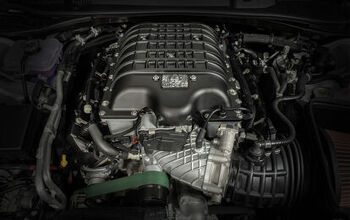Cylinder Deactivation Could Drop a Corvette Down to 2 Cylinders

General Motors may use an advanced cylinder deactivation technology, co-developed with Delphi and Silicon Valley startup Tula Technologies, in its SUVs and V-8 cars to shut down up to six cylinders to maximize fuel economy, Automotive News reported.
According to the automaker, GM in 2012 invested in Tula, which specializes in automotive engineering. The automaker announced in January that it would pursue the advanced cylinder deactivation technology for some of its SUVs, which could improve fuel economy by 15 percent in cars with engines with more than four cylinders.
The system, dubbed Dynamic Skip Fire, keeps the throttle open during operation and controls cylinder firing through a special valve that cuts off oil to the deactivated cylinders’ valve lifters. According to the company, the engine computer changes the deactivated cylinders to avoid vibration or noise.
According to the report, a GMC Yukon Denali with a 6.2-liter V-8 was fitted with DSF to shut down all but two cylinders on a highway drive. The Yukon’s fuel economy improved by 21 percent, according to Automotive News.
“This technology holds the potential to improve fuel economy on select GM vehicles without degrading power capability when it’s required,” Jon Lauckner, GM chief technology officer, vice president of Global R&D and president of GM Ventures, said in a statement.
The cost could be between $300 and $600 depending on the engine for the technology.

More by Aaron Cole

































Comments
Join the conversation
Did I read the article correctly that the ECU would vary which physical cylinders are shut down? (IOW, when a V8 goes to 4 cylinders, it's not the same four that shut down every time.) That would stop the oil-burning and other issues. NVH is still going to be a problem, but I can deal with a little growl when I can go at Vmax with A/C blowing ice cubes and 2 pax aboard, and still pull mid-30s on an N/A SOHC V6!
Tula is actually a large city in Russia which houses a major armament complex. Considering Corvette designer's Russian roots I suppose it makes sense.
Here's an idea: use the de-activted cylinders as an air compressor. On deceleration and braking, store the compressed air in a tank. Release the air in the tank back into the cylinders on acceleration to supplement gasoline power.
This is just more proof what a stup!d concept the Eco Boost V6 was, as far as replacing V8s. Here's a V8 that's more fuel efficient than the EB, more powerful, more compact, and weighs at least 100 lbs less. I'm baffled as to why we're so obsessed with cylinder count and displacement.